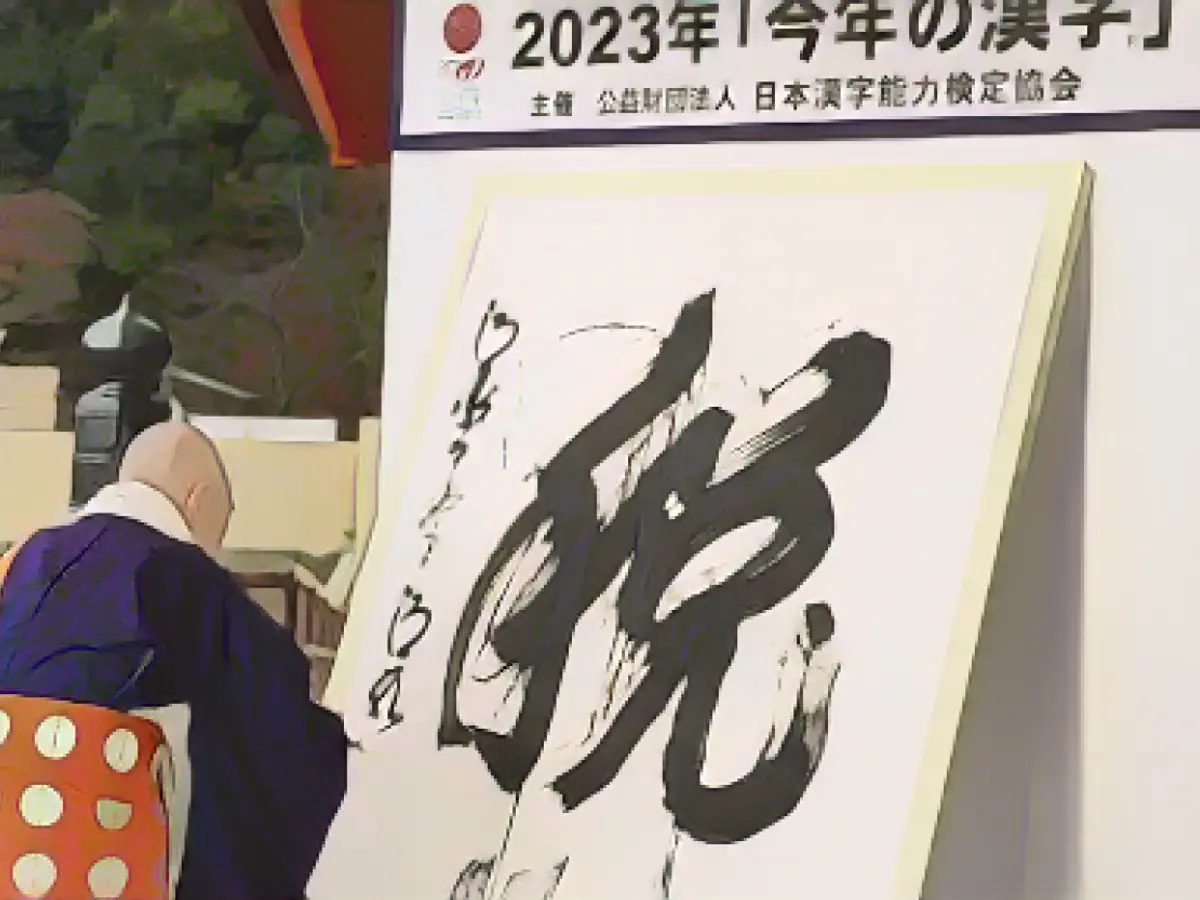Japan's Top Kanji Unveiled: Soaring Costs and Tax Debates
In a public poll, the 'tax' Kanji ( Zei ) emerged as the top choice for Japan's 'Word of the Year' by over 147,000 participants. The Head Priest of a Kyoto temple showcased a colossal Kalligraphy of the character during an unveiling ceremony on Tuesday.
Officials from the Kanji Aptitude Test Foundation revealed that this Kanji was chosen due to the ongoing debates surrounding tax hikes throughout the year. They also highlighted buzzing discussions about income tax deductions, a new accounting system, and stricter rules for tax-funded programs.
A resident from Osaka commented, "Next year, we'll have rumors of consumption tax increases, tobacco taxes, and a review of corporate taxes. There'll never be a lack of tax-related topics, so I selected this Kanji."
Japan's inflation rate had reached an astounding 4.3% in the previous year, compounded by stagnant wages that have plagued the country for years. Although these inflation figures might seem low compared to others, they are considered unusually high within Japan.
The Bank of Japan's decision to maintain low interest rates caused the Yen's devaluation and an increase in import costs, although this strategy is widely regarded as a beneficial tool to attract tourists post-pandemic.
A different Toyko resident explained, "Prices are rising, but wages aren't keeping up."
Tax-related debates were also at the forefront in 2014 when Japan raised its consumption tax.
Two other contenders for the top spot were "Heat," symbolizing a record-breaking heatwave that Japan experienced during that summer, and "War," which remained a global headline throughout the year.
Inflation Factors
- Price Increases: Annual inflation in Japan rose to 4.0% in January 2025, primarily driven by food prices, electricity, and gas costs.
- Food Prices: The price of rice skyrocketed by 90% amidst a bad crop caused by last year's intense heat, along with increased post-COVID consumption.
- Energy Prices: The suspension of energy subsidies since May led to substantial increases in electricity and gas prices.
- Yenweakness: The weak yen caused prices for various goods, such as bread and pasta, to escalate, making daily life more challenging for residents.
Consequences
- Consumer Strain: Soaring prices, particularly for food staples, are putting financial pressure on consumers. Restaurants are also feeling the pinch, and some now charge for rice that was previously included in meals.
- Economic Pressure: The rising cost of living is adding to the economic burden on residents, making daily life gradual harder. The weak yen further exacerbates this issue by causing imported goods to become more expensive.
- Government Intervention: To alleviate the rice shortage, the Japanese government has deployed strategic rice reserves into the market, but the impact of these reserves may not be fully realized until March's end.
The chosen 'Word of the Year' Kanji, "tax," highlights the escalating financial strain and economic issues currently faced by Japanese citizens, emphasizing the importance of effective cost management policies.







